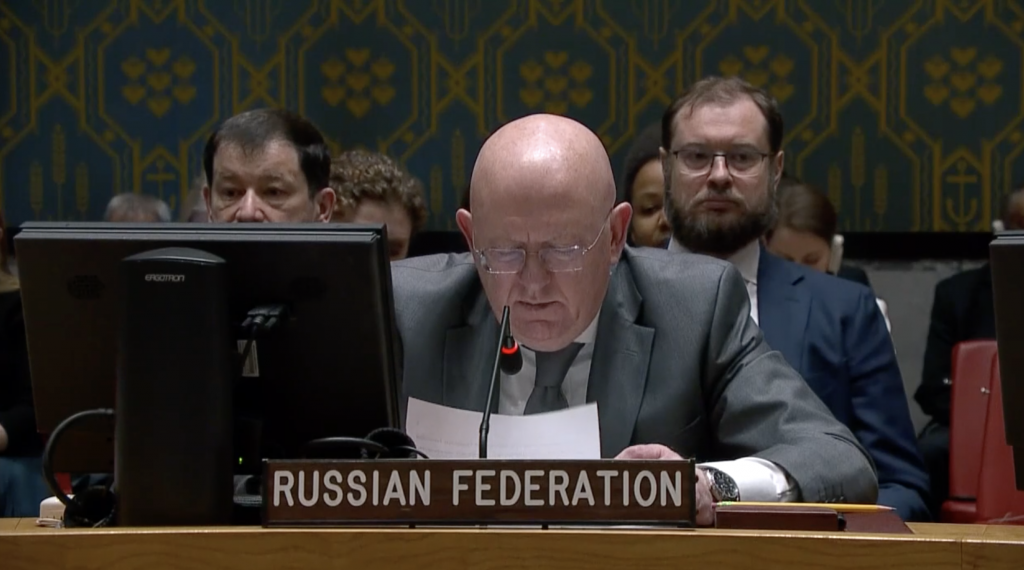Explanation of vote by Permanent Representative Vassily Nebenzia after UNSC vote on a draft resolution on mental health of peacekeepers and personnel of the peacekeeping and special political missions
Mme.President,
Russia supported the draft UNSC resolution on mental health of peacekeepers and personnel of the peacekeeping and special political missions. However, we have a statement to make regarding this resolution.
By bringing this narrow-specific topic to the Security Council, the authors of the draft in fact violated the principle of “division of labor” of UN bodies, which we cannot approve. We believe that when proposing initiatives, member states should remain mindful of the prerogatives of main UN bodies as enshrined in the Charter of the Organization.
The specialized platform for discussing general questions of peacekeeping is Special Committee C-34 of the General Assembly, and so it should remain. This Committee is where all interested sides, including troop contributors and experts of the UN Secretariat hold comprehensive reviews of all aspects pertaining to the UN peacekeeping operations. Thereby the opinion of troop-contributing states who have the required expertise stemming from their experience on the ground is key.
As for special political missions, issues of recruitment and providing working conditions are the responsibility of the Secretariat. Sometimes special political missions (that include Offices of Secretary-General’s Special Envoys) may be established without a direct prescription of the Security Council. So when the issue of mental health of peacekeepers and personnel of the peacekeeping and special political missions is taken to the platform of this Council, a wide range of workers who are supposed to be beneficiaries of this resolution turn out unable to take part in the targeted discussion.
The lack of technical competence of the Security Council that is required to address the questions of mental health of UN missions’ staff, insufficient data and analysis on this subject matter, and merge of “peacekeeping operations” and “special political missions” in one notion “peace operations” adds some confusion regarding the distribution of responsibilities for recruitment of personnel, mental health support, financing, and the overall scope of the required efforts. Against this backdrop, adoption of this resolution causes a loss of its added value.
Quite often, Security Council is reproached for engaging on the issues that are non-core to its mandate and thus infringing on the authorities of other UN bodies. We fully share this concern. Our colleagues on the Council are well aware that we have a very reserved approach when it comes to discussing generic, thematic, and narrow-specific issues in UNSC. Recently, the number of such issues has been constantly growing. In this regard, we once again call on those who generate such initiatives, to check them against the main tasks of the Council and see what the UNSC can really undertake regarding all such aspects.
Thank you.
